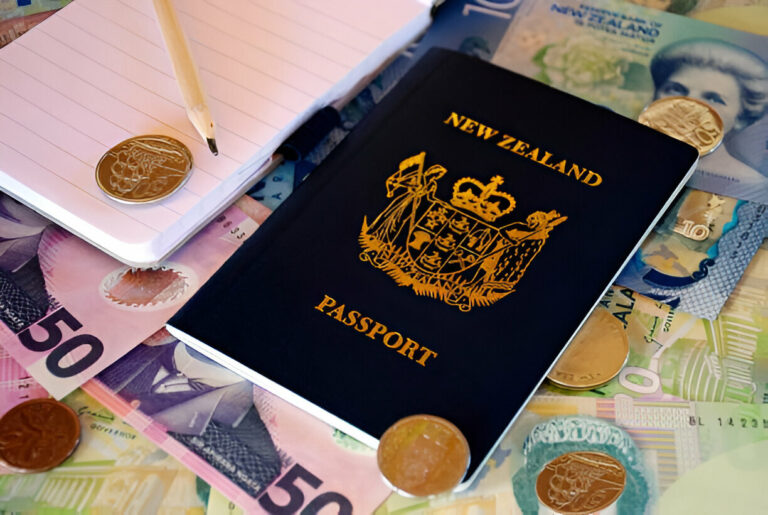South Korea Business Visa for Immigrants – Visa Sponsorship in South Korea
South Korea has emerged as a thriving hub for international business, innovation, and technology. With its robust economy, strategic location in East Asia, and vibrant culture, South Korea attracts entrepreneurs, investors, and skilled professionals from around the globe.
South Korea boasts the fourth-largest economy in Asia and the tenth-largest in the world, making it an attractive destination for business and investment. The country is renowned for its advancements in technology, manufacturing, automotive, and entertainment industries. Seoul, the capital city, serves as a global financial hub with a dynamic startup ecosystem supported by government incentives and a skilled workforce.
Types of Business Visas in South Korea
South Korea offers several visa categories tailored to different business and professional needs. Understanding the appropriate visa type is essential for ensuring compliance with immigration laws and facilitating a smooth transition into the South Korean market.
D-8: Corporate Investment Visa
The D-8 visa is designed for foreign investors and business owners intending to invest in a South Korean company. This visa category supports those who establish, acquire, or invest in a business entity within the country.
Eligibility Criteria:
- Minimum investment amount as specified by South Korean law.
- Demonstrated business plan and investment strategy.
- Proof of financial stability and investment funds.
Benefits:
- Permission to engage in business activities within the invested company.
- Eligibility for permanent residency after certain conditions are met.
D-9: Trade Management Visa
The D-9 visa caters to individuals involved in international trade and related activities. This includes importers, exporters, and those managing trade operations for a company.
Eligibility Criteria:
- Employment or ownership in a company engaged in international trade.
- Demonstrated experience or expertise in trade management.
Benefits:
- Authorization to conduct trade-related business activities.
- Opportunities to expand business operations within South Korea.
D-10: Job-Seeker Visa
The D-10 visa is intended for individuals seeking employment or business opportunities in South Korea. It allows applicants to stay in the country while searching for suitable job positions or establishing business connections.
Eligibility Criteria:
- Recent graduates or professionals seeking employment.
- Valid qualifications and skills relevant to the South Korean job market.
Benefits:
- Flexibility to explore various employment or business opportunities.
- Time to network and establish professional contacts within South Korea.
Other Relevant Visas
Depending on specific business activities and professional roles, other visa categories may apply, including:
- E-7: Specialized Employment Visa: For professionals with specialized skills or expertise.
- F-2: Resident Visa: For long-term residency, often following initial investment or employment visas.
- F-5: Permanent Resident Visa: For those seeking permanent residency in South Korea.
Visa Sponsorship in South Korea
Visa sponsorship is a critical component of the South Korean business visa process. A sponsor, typically a South Korean company or an individual with legal standing, supports the visa applicant by providing necessary documentation and assurances to the immigration authorities.
Role of the Sponsor
The sponsor plays several key roles, including:
- Providing Employment or Investment Opportunities: Offering a position within the company or facilitating investment in a business entity.
- Assisting with Documentation: Preparing and submitting required documents to support the visa application.
- Ensuring Compliance: Ensuring that both the sponsor and the applicant adhere to South Korean immigration laws and regulations.
- Offering Support: Assisting the applicant with settling into South Korea, including accommodation and integration into the business environment.
Requirements for Sponsors
To act as a sponsor, the South Korean entity must meet specific criteria:
- Legal Standing: The sponsor must be a legally registered company or individual in South Korea.
- Financial Stability: Demonstrate the ability to support the visa applicant financially, if necessary.
- Business Relevance: The sponsorship should align with the sponsor’s business operations and objectives.
- Documentation: Provide necessary documents such as business registration, financial statements, and a formal invitation letter.
Eligibility Criteria for Business Visas
Eligibility criteria vary depending on the visa type but generally include the following:
- Valid Passport: Applicants must possess a valid passport with at least six months of validity remaining.
- Investment or Employment Intent: Clear intention to invest in a business or seek employment within South Korea.
- Financial Stability: Proof of sufficient funds to support business operations and personal living expenses.
- Professional Qualifications: Relevant educational background, work experience, or specialized skills pertinent to the business sector.
- Health and Character: Applicants may need to undergo medical examinations and provide police clearance certificates to demonstrate good health and character.
Application Process for a South Korean Business Visa
Navigating the visa application process requires careful preparation and adherence to South Korean immigration guidelines. Below is a step-by-step overview of the process.
Step 1: Preparing Necessary Documentation
Gather all required documents to support your visa application. These typically include:
- Completed Visa Application Form: Accurately filled with personal and professional information.
- Passport-Sized Photographs: Recent photos meeting South Korean embassy specifications.
- Passport: Original passport with a valid period extending beyond the intended stay.
- Invitation Letter: From the South Korean sponsor detailing the purpose of the visit.
- Business Plan: Detailed plan outlining the business objectives, investment strategy, and operational framework.
- Financial Statements: Proof of funds, including bank statements and investment certificates.
- Educational and Professional Credentials: Degrees, certifications, and work experience letters relevant to the business field.
- Health and Character Documents: Medical examination reports and police clearance certificates, if required.
Step 2: Submitting the Application
Submit the prepared application and supporting documents to the nearest South Korean embassy or consulate. Depending on your location, you may need to schedule an appointment for submission.
Submission Tips:
- Ensure all documents are translated into Korean or English, as required.
- Double-check for completeness to avoid delays or rejections.
- Keep copies of all submitted documents for your records.
Step 3: Visa Interview and Approval
In some cases, applicants may be required to attend a visa interview. During the interview, consular officers will assess the legitimacy of your business intentions and the completeness of your application.
Post-Interview Process:
- Await processing, which can take several weeks depending on the visa type and individual circumstances.
- Upon approval, collect your visa from the embassy or consulate.
- Verify all visa details for accuracy before traveling to South Korea.
Benefits of Obtaining a Business Visa in South Korea
Securing a business visa for South Korea offers numerous advantages for immigrants, including:
- Access to a Thriving Market: Engage with one of Asia’s leading economies and expand your business operations.
- Networking Opportunities: Connect with industry leaders, potential partners, and a skilled workforce.
- Government Support: Benefit from various incentives, grants, and support programs for foreign investors and entrepreneurs.
- Pathway to Permanent Residency: Certain visa categories provide a clear route to obtaining permanent residency in South Korea.
- Cultural Integration: Immerse yourself in South Korea’s rich culture, enhancing personal and professional growth.
Challenges and Considerations
While South Korea presents abundant opportunities, immigrants may face several challenges, such as:
- Language Barrier: Proficiency in Korean can significantly enhance business interactions and daily life.
- Regulatory Compliance: Navigating South Korean laws and regulations requires careful attention to detail.
- Cultural Differences: Understanding and adapting to local business etiquette and cultural norms is essential for success.
- Competitive Market: South Korea’s competitive business environment demands high standards and innovation.
- Visa Restrictions: Staying informed about visa limitations and ensuring timely renewals is crucial to maintaining legal status.
Tips for a Successful Visa Application
To increase the likelihood of a successful business visa application, consider the following tips:
- Thorough Research: Understand the specific visa requirements and choose the appropriate category for your business objectives.
- Accurate Documentation: Ensure all documents are complete, accurate, and meet the embassy’s specifications.
- Professional Assistance: Engage with immigration consultants or legal experts specializing in South Korean visas to navigate complex processes.
- Clear Business Plan: Present a well-structured and realistic business plan that aligns with South Korea’s economic landscape.
- Demonstrate Financial Stability: Provide comprehensive proof of funds to support your business and personal expenses.
- Build Strong Relationships: Establish connections with local businesses, sponsors, and industry associations to bolster your application.
- Prepare for the Interview: If required, practice common interview questions and articulate your business intentions clearly and confidently.
Conclusion
South Korea offers a dynamic and promising environment for immigrants seeking business opportunities and professional growth. By understanding the various business visa options, meeting eligibility criteria, and effectively navigating the sponsorship and application processes, entrepreneurs and professionals can successfully establish themselves in South Korea. Leveraging the country’s robust economy, innovative sectors, and supportive infrastructure can pave the way for long-term success and integration into South Korean society.




